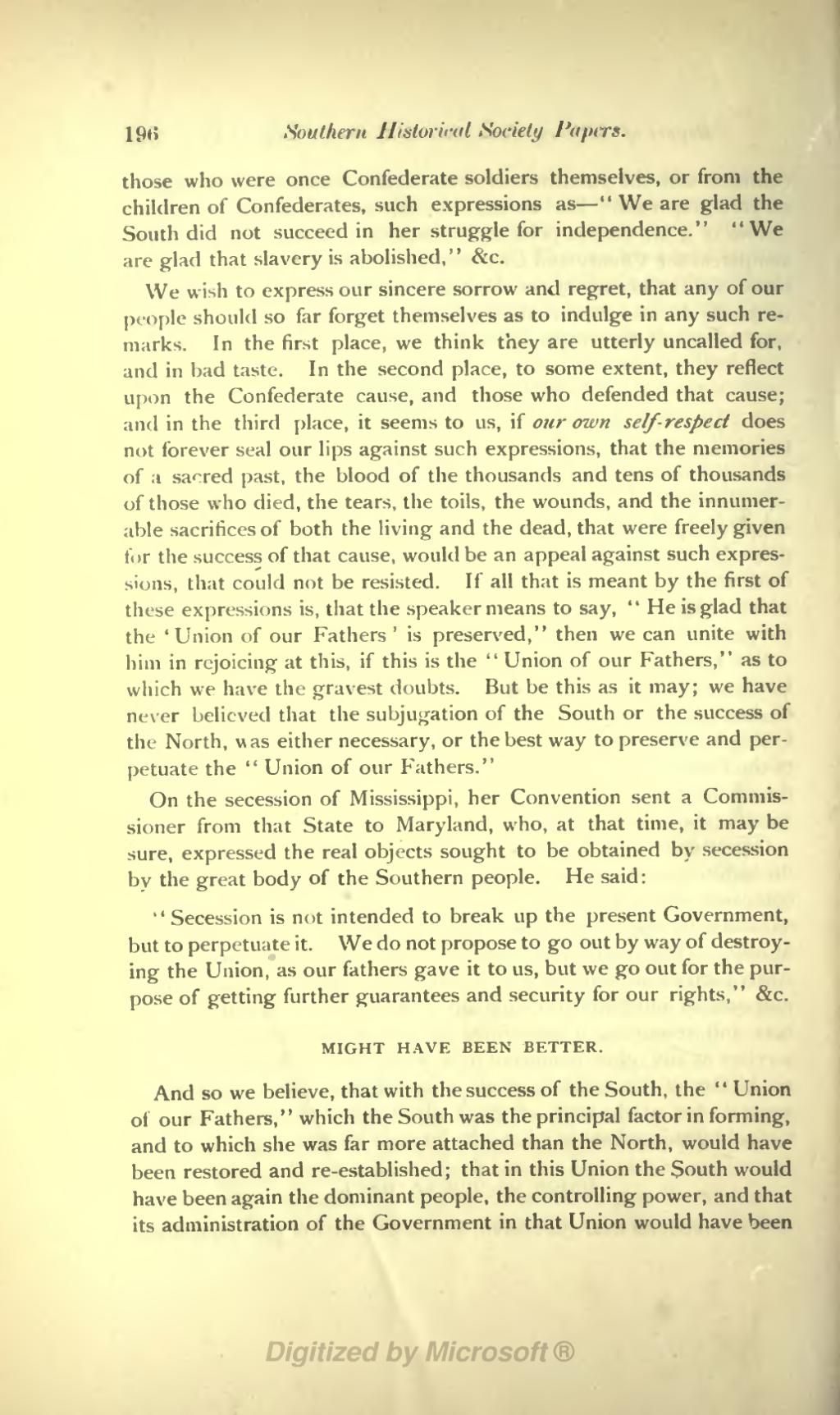those who were once Confederate soldiers themselves, or from the children of Confederates, such expressions as " We are glad the South did not succeed in her struggle for independence." "We are glad that slavery is abolished," &c.
We wish to express our sincere sorrow and regret, that any of our people should so far forget themselves as to indulge in any such re- marks. In the first place, we think they are utterly uncalled for, and in bad taste. In the second place, to some extent, they reflect upon the Confederate cause, and those who defended that cause; and in the third place, it seems to us, if our own self-respect does not forever seal our lips against such expressions, that the memories of a saored past, the blood of the thousands and tens of thousands of those who died, the tears, the toils, the wounds, and the innumer- able sacrifices of both the living and the dead, that were freely given for the success of that cause, would be an appeal against such expres- sions, that could not be resisted. If all that is meant by the first of these expressions is, that the speaker means to say, " He is glad that the 'Union of our Fathers ' is preserved," then we can unite with him in rejoicing at this, if this is the " Union of our Fathers," as to which we have the gravest doubts. But be this as it may; we have never believed that the subjugation of the South or the success of the North, vias either necessary, or the best way to preserve and per- petuate the " Union of our Fathers."
On the secession of Mississippi, her Convention sent a Commis- sioner from that State to Maryland, who, at that time, it may be sure, expressed the real objects sought to be obtained by secession by the great body of the Southern people. He said:
" Secession is not intended to break up the present Government, but to perpetuate it. We do not propose to go out by way of destroy- ing the Union, as our fathers gave it to us, but we go out for the pur- pose of getting further guarantees and security for our rights," &c.
MIGHT HAVE BEEN BETTER.
And so we believe, that with the success of the South, the " Union of our Fathers," which the South was the principal factor in forming, and to which she was far more attached than the North, would have been restored and re-established; that in this Union the South would have been again the dominant people, the controlling power, and that its administration of the Government in that Union would have been
